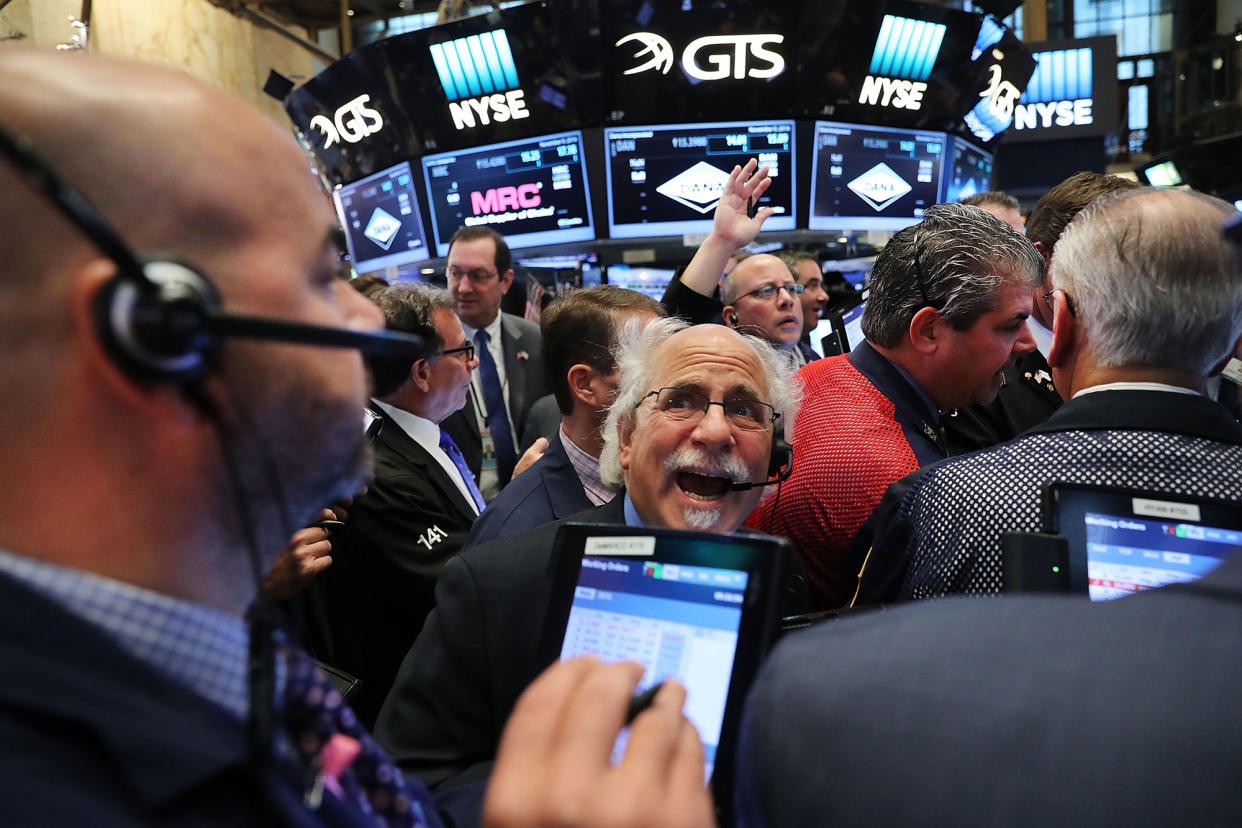Populists are not going to crash and burn global stock markets

‘When things are steep, remember to stay level-headed’ – Horace
Have I shared with you my theory about how if a financial story appears on the front page of a well-known business newspaper for three days in a row then whatever is being agitated about or glorified is pretty much fully factored into the world’s stock markets?
The same goes for political stories as well of course. Today newspapers are increasingly “passe” – with the internet and related social media functions in ascendancy – so I have been intrigued to see on my favoured social media feed on numerous occasions in recent days a chart showing the increasing difference between French and German ten year bond yields.
Naturally anything involving bond yields – effectively the interest rate governments have to sell bonds at to finance budget deficits – is deep in geek territory but the basic interpretation is that we have a ‘Le Pen’ ready reckoner ahead of the French Presidential elections later in the year.
If the difference goes up, the market is thinking that the chances of Le Pen being elected President are going up – and hence the volume of worrisome articles about Europe and the wider world circulating at the moment.

However the wise among you will be observing ‘but every day I read that xyx global market is at new all-time highs’…of course you would be completely correct. Just prior to starting to write this article I was reading how the mid cap FTSE-250 index – which was hurt so badly in the aftermath of the Brexit referendum vote and is generally thought to be more directly correlated with the strength of the UK domestic economy – had just reached a record high.
In summary we have two opposing forces here. On one hand deeply worrisome thoughts and concerns about the future of Europe, Brexit shenanigans, President Trump’s policies and/or where Chinese growth is heading. Meanwhile on the other hand multiple global stock markets at or around record levels.
It is always this way in global financial market. As the old market adage goes: an optimist can always find a reason to be optimistic and a pessimist can always find a reason to be pessimistic.
Such observations are usually followed by an exhortation to be a patient investor because over the longer-term markets go up etc, etc. Whilst this latter observation is typically true you and I naturally look at our portfolio statements and balances on a more frequent basis which is why this column attempts to answer questions like about this year specifically.
A few columns ago I mused that President Trump would be economically pragmatic because countries like China bought far too much of United States debt issuance every year. Funny how the President’s firm tone with Mexico or even Europe did not reappear in his first phone conversation with President Xi.

As for Europe, we have already seen how populists struggle to follow through. Greece has once again re-entered the financial world headlines in recent days with criticism from the International Monetary Fund (IMF) about a lack of reforms concluding with an observation that the country was in crisis.
Much of this is true and for me a dramatic Greek bond restructuring is the only reasonable outcome. Far, far less likely is Greece leaving the European Union or euro which – lest we forget – was the core policy of the populist Syriza government when they were elected a couple of years ago.
[graphiq id=”ctJHUao4RzT” title=”Greece” width=”500″ height=”747″ url=”https://w.graphiq.com/w/ctJHUao4RzT” link=”https://www.graphiq.com” link_text=”Graphiq” ]
And why has this not happened? Leaving the warm bosom of Europe would liberate but those debts – in hard euros – would not go away. Far better to work out an option inside the tent than outside where Germany and the IMF will cut a better deal much more quickly.
And the same applies to Italy and its troublesome banks and the rest of the still-struggling Southern Europe especially as two other anti-populist angles are kicking in. The first is that the European economy is improving aided by a continuing stimulus which potentially could run until 2019 as per comments during the week by the President of the European Central Bank Mario Draghi.
The second is that Mrs Merkel is facing a real challenge for the Chancellorship of Germany from the popular (but very centrist) Martin Schultz. And how is she responding? By spending money and encouraging faster growth in the German economy…otherwise known as classic ‘political business cycle’ management.
So forget the Le Pen indicators and conclude their recent over-use reflects an obsession that is not close to a political reality. And this spills positively into European stock markets. And when all of this is worked though…the Brexit discussions can really start.
But that is something for you to worry about in 2018-19.
Chris Bailey has 20 years of investment industry experience at long-only and long-short institutions as a global multi-asset fund manager, strategist/macro thinker and, in the earlier part of his career, as a securities and fund analyst.
In 2013 he founded Financial Orbit focusing on daily macroeconomic comment and securities analysis. In December 2016 his Twitter account (@financial_orbit) was named as one of the ’50 accounts investors should follow in 2017’.
The content on this page does not constitute financial advice and is provided for general information purposes only. Nothing on this page should be regarded as an offer to conduct investment business or to buy/sell any investment

 Yahoo News
Yahoo News 
